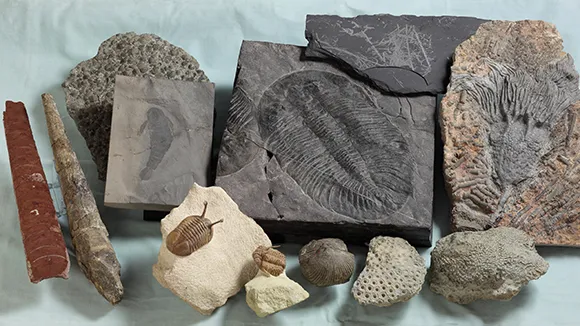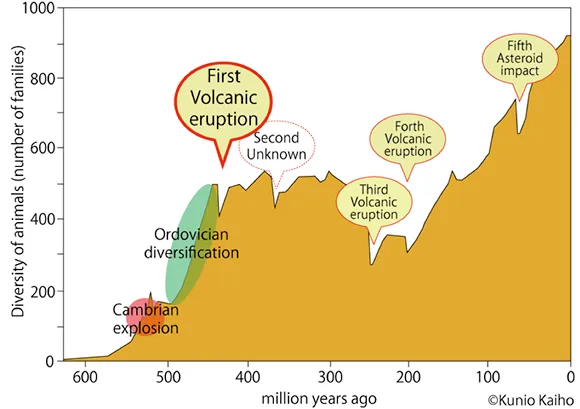Life on Earth comes and goes (there’s a sobering thought), but mass extinction events have a habit of wiping out huge swathes of the planet’s population. So far, these mass extinctions have happened five times, the most famous of which is the asteroid that wiped out the dinosaurs and helped mammals rule the roost (thanks for that).
But up until now the reasons for the first two have been shrouded in mystery. Many theories, such as climate change and asteroid impacts, have been proposed, but now researchers from the USA and Japan have a new theory – a huge volcanic event.
So what happened?
Between 600-450 million years ago, during the Ordovician period, life on Earth consisted mostly of marine animals such as corals, trilobites, sea scorpion, orthoceras, brachiopods, graptolite, crinoid and jawless fish. A team led by Dr. David S. Jones of Amherst College and Professor Kunio Kaiho of Tohoku University wanted to find out what caused more than 80 per cent of this population to die out.
By analysing sediments in rock samples from both the USA and China, the team discovered higher levels of mercury in both areas from this period - and where’s there’s mercury you can usually be sure it’s been spewed up by volcanoes.

Volcanoes are bad right?
Yep, the planet has a history doing its best to wipe out its own population. The third and fourth mass extinctions have both been blamed in part on volcanic eruptions (and who’s betting on it wiping us out?), which produce huge amounts of sulphate aerosols that block the light from the Sun, leading to rapid cooling of the planet. The team believe that is it this cooling that led to the extinction of most of the marine animals. Their results are published in the journal Geology.

So do they come up with any solutions in case another blows?
Not really, but they do want to move on to the second extinction and see if they can pinpoint volcanic activity being the cause of four out of five mass extinctions. That said, it might not be comets and volcanoes that we need to worry about – we’re more likely to be the masters of our own demise.
Follow Science Focus onTwitter,Facebook, Instagramand Flipboard
